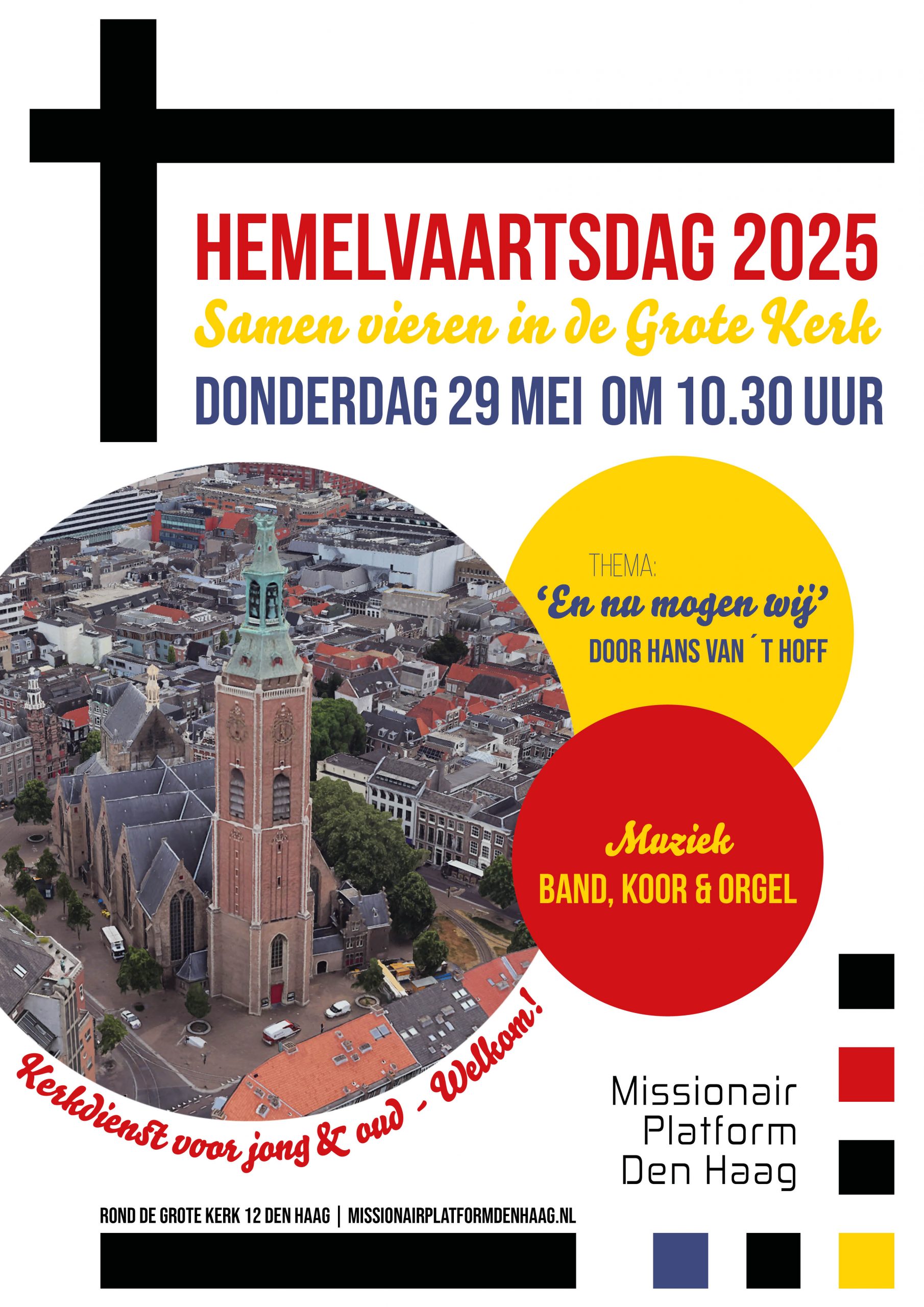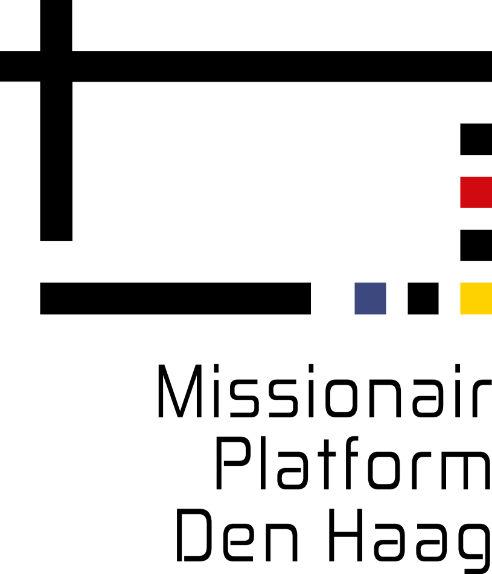Hemelvaartsdag // Ascension day 2025
Bekijk alle informatie hieronder! // Check out all the information below!

John 16:12–24 + Acts 1:4–11 – And Now We May…
Brothers and sisters, beloved by our Lord,
Jesus ascended into heaven, and then a cloud came and they could no longer see Him. They stood there, gazing up into the sky.
Boys and girls, I remember when I was in the third year of high school, we had a test with Mr. de Werk. A kind man, but not very good at maintaining order.
We complained to him that the class one floor above us was making too much noise: "Sir, you really need to do something about that—we can’t concentrate like this!"
We thought it was hopeless—we were in the middle of a test.
But suddenly he stood up, told the loudest boy in class, Rik, to sit behind his desk and keep an eye on things, and then he disappeared upstairs.
At first, we were quiet, looking at each other in disbelief—did he really just leave?!—but soon the chatter started, everyone talking over one another.
Rik wouldn’t allow it. He took on the role. "Quiet, everyone," he called out. "Marieke, you’re the best in English, read yours aloud. Sven, you’re on hallway watch—warn us if he comes back."
So said, so done.
When Mr. de Werk returned, we had actually made quite a bit of progress.
"How did it go, Rik?"
"Great, sir, everyone working hard, as you can see. I just had to warn Hans not to peek at someone else’s paper. That sneak."
That moment, boys and girls, when he suddenly left and we really didn’t know what to do—being in a classroom without a teacher, that was a new situation. We didn’t know how to handle it at first.
That’s how it was—though of course on a much grander scale—for the disciples of Jesus when He left. They were stunned. We just read how they stood there, mouths open, staring into the sky.
What I want to emphasize is that what happened afterward was anything but automatic. The events recorded in Acts didn’t just happen smoothly, as if they instantly turned from dependent students into independent apostles. No, a shift had to occur.
And if we take the classroom comparison a little further: the "Rik" among Jesus’ disciples would of course be Peter. At some point, he took the lead.
I share this story to help us relate to what the disciples were going through. You can be sure there was a lot of discomfort. Even though Jesus had prepared them as best He could, life without Him looked totally different. It was an entirely new situation.
Now He was gone. So what now?! How were they supposed to deal with this new reality?
Don’t think about this too lightly. Sure, Jesus had prepared them, but He hadn’t programmed them.
But as we just read, their "What now?" did eventually become: Let’s pray.
Let’s open ourselves to Him. Prayer is an attitude of faith that comes from within, from your heart; it’s not an obligation. Devoting yourself to God in prayer—that’s how faith begins from our side.
And then suddenly, the Spirit flows in. And things happen that no one could have ever imagined…
That is what Jesus had explained to them in John 16: The Holy Spirit would help them fully understand the truth of the gospel so they could tell it clearly to others. But that meant they needed to be open to the Spirit. And being open happens through prayer.
The Spirit and Jesus are like two hands working together. The Spirit knows exactly what Jesus had taught and explained to His disciples over the past three years—especially after His resurrection, when He gave them that awe-inspiring forty-day course. The Holy Spirit picks up right where Jesus left off. He helps them understand how everything foretold in the Old Testament connected to what had happened before their eyes.
And I said earlier that Jesus didn’t program them—and neither does the Holy Spirit. Instead, the Spirit uses their memories of what they experienced with Jesus. Because what you’ve personally experienced—you can speak about that with passion, authenticity, and conviction. The Holy Spirit uses those experiences as the vehicle for the gospel message.
The ultimate example, of course, is Pentecost. Peter leads, but all the disciples speak out in Jerusalem about what Jesus had done—what they saw with their own eyes and heard with their own ears.
Just look at what they stir up in Jerusalem—how powerfully the Spirit moves in them!
Maybe it's a good idea to spend the coming weeks reading several chapters of Acts again. Then you’ll really be struck by how things unfolded. In chapter 4, for example, you’ll read how the early church prayed with dedication and intensity. And when they said "Amen," the place where they were meeting shook—and they were all filled with the Holy Spirit.
And, it says, they then went out boldly to proclaim the good news about Jesus.
See? Again, that direct connection between devoted prayer and the Spirit working through them.
So, dear brothers and sisters, on one hand, we recognize in the disciples that they didn’t have everything figured out right away: "Men of Galilee, why do you stand here looking into the sky?"
And later on, we read about tensions and uncertainty over how the church should proceed. Yes, we recognize that too—wondering what exactly we’re supposed to do and how.
But on the other hand, they are a powerful example for us: they devoted themselves to God in prayer. The church of Christ is a praying church. And from that foundation, we too are called to be used by Him in proclaiming the gospel.
And then you often hear the objection: "But we’re not the apostles."
And that’s true. The apostles had a unique and foundational role in the church. They laid the foundation, formulated the doctrine. That was a one-time task—a responsibility they carried.
But beyond that, we as Christians, as followers of Jesus, walk in their footsteps. We too are coworkers of God. We are allowed to represent God.
Still, it's true: we haven’t had a forty-day course directly from Jesus, nor did we spend three years with Him like they did.
And often, we still feel uncertainty and embarrassment about what our task or calling might be. And sometimes that’s where it ends—then we don’t act, staying busy with our own agendas.
Could it be that we see Jesus more as our Savior than as our Lord who reigns from His throne?
Could it be that we feel more comfortable with Jesus as our Redeemer than aware of Him as our King? That we think of Him more as someone who matters after we’ve died, than as Someone who calls us to obedience now?
Because the latter means we recognize that we are servants of this great King. That we read the Bible, like we did this morning, and think: Okay, this is what I am supposed to do, instead of living our lives with the only takeaway being that we’re assured of what comes after death.
Brothers and sisters, what we celebrate at Easter is not only that our Lord rose again and conquered death—but, like Mary and the disciples, we are invited to see that our Lord lives! He is alive now!
Saying "He is risen" is proclaiming the truth, absolutely—but it’s still in the third person. It’s so important to be deeply aware that we may say: I have seen the Lord!—just like Mary did. And that means you experience Him in your life. You walk with Him.
Not in some abstract way, but in very real terms. For example, that you walked through a dark valley with Him, and thanks to Him, you saw the light again. And that you may testify to that.
We too may walk with Him, just like the disciples did.
We too may, with ups and downs, testify of Him.
After that moment of confusion and uncertainty, it became essential for the disciples to wake up and pay attention to what the Spirit of Christ was doing and how they could align with that. And that applies just as much to us here in Greater The Hague:
Awake, my soul, and sing!
Be alert, brothers and sisters. Watch what the Lord is doing and join in.
For our Lord did not ascend to the throne just to wait for the Last Day. No—He is God with us, here and now.
Dear brothers and sisters, we began with a school story, so I feel free to give you a bit of homework:
Please take John 16:24 with you to your own church or community:
"Until now you have not asked for anything in my name. Ask and you will receive, and your joy will be complete."
Amen.




